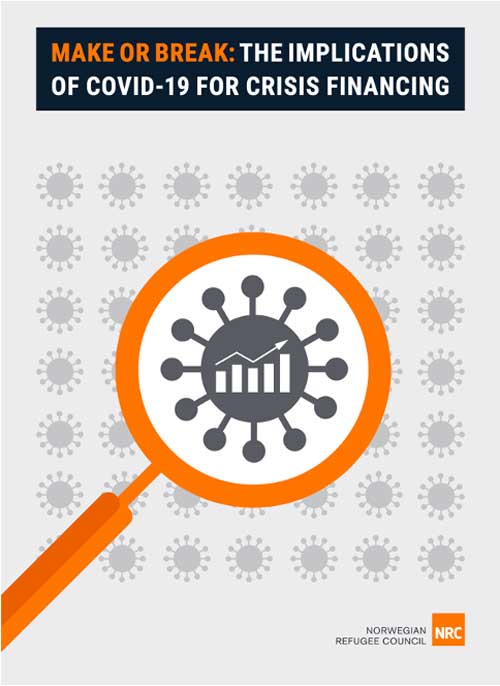The COVID-19 pandemic has exacerbated challenges for humanitarian work across the globe, including for how emergency response is being funded, providing a real-time “stress test” on financing systems. At the same time, stakeholders have been taking stock of the progress made under the Grand Bargain humanitarian financing reforms and considering priorities for future reform agendas. To examine what the pandemic response tells us of the fitness of the international crisis financing system, the Norwegian Refugee Council commissioned a study – a “think piece” looking at what can be learned from the current situation, even though the pandemic and our response to it are still in an early stage.
To help stimulate reflection and debate on the future of humanitarian financing and to launch this study, NRC and PHAP organized a webinar on 15 September. During the webinar, we heard about the main findings and recommendations emerging from NRC’s study. This set the stage for a panel discussion on the role and fitness of the existing humanitarian financing structure and on how the system should evolve to be able to respond to crises of this complexity.
The Report
COVID-19 is the first global pandemic in a hundred years. It has tested the international crisis response and financing system in novel ways, aggravating well-known challenges and casting light on other unanticipated shortcomings. It has exposed fundamental weaknesses in global preparedness, including substantial under-investment, a tendency to adopt narrow thematic approaches and a widespread failure to prepare for secondary socioeconomic impacts. It has exposed critical dependencies in crisis response systems, including the risks that major disruptions of transport and key commodity markets pose to business continuity. The pandemic demonstrates that the international response system needs to be prepared for a new order of crises, for an era in which large-scale systemic shocks may overlay and aggravate existing risks and significant long-standing humanitarian needs. Incremental reforms will not deliver a system fit to respond effectively.
